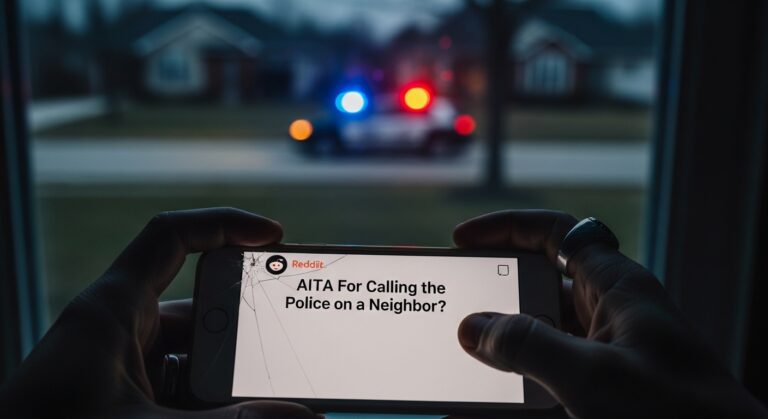Title: The Unexpected Visitor
In a quiet suburban neighborhood, where the sound of children playing often filled the air and the scent of freshly mowed lawns wafted through open windows, an unexpected encounter transformed an ordinary day into an extraordinary tale of fear and empowerment.
It was a typical Tuesday afternoon when Sarah, a 50-year-old woman, found herself alone at home. Her husband, Mark, was out running errands, leaving her to enjoy the peace of their cozy abode. This peace, however, was about to be shattered.
As Sarah settled into her favorite armchair, a book resting on her lap, the doorbell rang. She glanced at her phone, noting the time. It was too early for any deliveries, and the solicitors had mostly vanished since they’d hung a sign discouraging them. “Just ignore it,” she told herself, hoping the visitor would simply go away. Little did she know that fate had other plans.
Moments later, her tranquility was disrupted by the sound of furious banging. A man, presumably in his seventies, pounded on her security door, his voice echoing with urgency as he called out for someone named “Sue.” Confusion washed over Sarah. Who was this man? Why was he looking for Sue? The questions raced through her mind, but fear took the lead. She peered through the peephole, but all she could see was a shadowy figure, his face obscured by the bright sunlight.
The pounding grew louder, more desperate, and Sarah’s heart raced. She was a small woman, dealing with physical ailments that made her feel vulnerable in situations like these. Panic gripped her as she imagined the worst. What if he forced his way in? What if he meant her harm? Clutching her phone tightly, she made a split-second decision. She would not open the door. Instead, she herded her three cats into the bedroom, locking the door behind her.
Her fingers trembled as she dialed 911, the operator’s calm voice grounding her momentarily. “What’s your emergency?” they asked. Sarah explained the situation, her voice quivering as she recounted the man’s relentless knocking and shouting. The operator assured her that help was on the way and urged her to stay calm and hidden until the police arrived.
As Sarah waited, the man continued his assault on her windows, his frantic cries echoing in her ears. Time seemed to stretch endlessly, each second feeling like an eternity. She remembered the self-defense classes she had taken years ago, but the lessons felt distant and futile now. The weight of isolation settled heavily on her shoulders; she was alone in a house that felt more like a prison than a sanctuary.
Finally, after what felt like an eternity, the sound of sirens pierced the air, and a sense of relief washed over her. She could hear the police officers speaking to the man outside, their voices a mix of authority and reassurance. After a few moments, the banging ceased, replaced by a low murmur. Sarah slowly opened the bedroom door, her heart still pounding in her chest. She cautiously made her way down the hallway, peering out through the curtains.
What she saw shocked her. The police had subdued the man and were guiding him away from her property. One of the officers approached her door, gently knocking. “Ma’am, are you alright?” he asked, his voice steady and kind.
“Yes, I’m okay,” she replied, her voice barely above a whisper. She opened the door a crack, peering out at the scene. The officer reassured her that the man was confused and was actually looking for a neighbor who lived two doors down. “He has dementia,” the officer explained. “He sometimes wanders off and gets mixed up.”
Feeling a rush of conflicting emotions, Sarah thanked the officer for his help and closed the door, leaning against it as she took a deep breath. The adrenaline was still coursing through her veins, but now, a different feeling began to emerge—power. She had taken a stand, made a decision in a moment of fear, and had ensured her safety.
The next day, Sarah decided to pay a visit to Sue, the woman the man had been searching for. She knocked gently on the door, her heart racing again, but this time with curiosity rather than fear. Sue opened the door, a warm smile instantly brightening her face. After exchanging pleasantries, Sarah recounted the incident, and Sue’s expression turned serious.
“Oh dear, that’s so concerning,” Sue said. “He’s been having more episodes lately. I try to keep an eye on him, but it’s a challenge.”
As they talked, Sarah felt a connection forming. They shared stories about their lives, their families, and the challenges of living in a neighborhood where everyone had their own battles to fight. In that moment, the fear from the previous day began to dissipate, replaced by a sense of community.
With Sue’s support, Sarah learned about local resources available for seniors and their families. They discussed ways to keep the neighborhood safe and connected. By the end of their conversation, Sarah felt empowered—not just by her own actions but by the bond of friendship they had forged.
Weeks turned into months, and Sarah became an integral part of the neighborhood watch group. She organized meetings and created a communication network to ensure that everyone looked out for one another. The incident that had once filled her with fear became a catalyst for change, transforming her from a frightened woman into a proactive community leader.
As the seasons changed, so did the dynamics of the neighborhood. Sarah had not only reclaimed her sense of safety, but she had also fostered a spirit of unity. Her friendship with Sue blossomed, and together, they created a haven where everyone felt heard and secure.





0 Comments